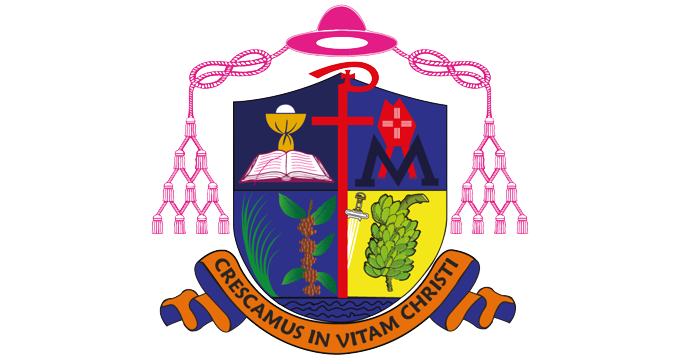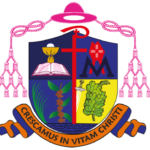THE ARCHIVES, LIBRARY AND BINDING DEPARTMENT
Historical/ Background Note
Having known the importance of knowledge economy, that is, an economy ruled by Knowledge, whereby knowledge is power, His Eminence Emmanuel Cardinal Nsubuga the Archbishop of Kampala then established Archdiocesan archives by Ad Perpetum Memoriam (for a permanent Record of matter) on the 8th .Dec.1978 (the feast of Immaculate Conception). Realizing that he had many volumes of files and other documents that contain a lot of wisdom and precious historical legacy, Cardinal Nsubaga thought of coming up with an organized way of keeping and preserving them according to universal standards and following the Catholic law that is; “An inventory or catalogue is to be made of the documents kept in the archives, with a short synopsis of each document.” Can. 486§3.
The first Archdiocesan archivist was Fr. Tourigny Yves (WF) and he was appointed in April 1973 and entrusted with the duty of establishing standardized Archdiocesan Archives and to promote a wider understanding of the Roman Catholic Church by making some of its Archival holdings accessible to the general public. From him to date, there are about five archivists so far appointed and the current being Fr. Anthony Musuubire.
The current Archdiocesan Archives building was solemnly blessed and opened by His Eminence Emmanuel Cardinal K. Nsubuga on the feast of the Immaculate Conception 8th December 1978. The building is dedicated to the memory of Rev. Brother Amans Dalmas WF, Uganda’s first Catholic missionary with Fr. Lourdel Mapeera.
The Archdiocesan Archives preserve records from both the religious and secular institutions. These Archival Materials date as far back as 1879 (early History of our Local Church).
These Archdiocesan Archives are Historical and private in nature (Access and retrieval of Archival Materials is only granted by the Ordinary or his delegate (eg. Chancellor Can. 491 par 3).
Access to Archives
The Archdiocesan archives are private in nature since they concern exclusively archdiocesan affairs. However, some of the materials found in the archives may be consulted by researchers who have been authorized by the Bishop or his delegate. “It is not permitted to remove documents from the archives, except for a brief time only and with the consent either of the bishop or of the moderator of the curia and the chancellor.” Can. 488. Consequently, for one to use the archives, they must submit a written request indicating their intentions of the petition for which the request is being made.


Types of Archives and materials within archives.
The Archdiocesan archives has all the three types of archives that, the Current Archives, the General/ Historical Archives and the Secret Archives (Under key and lock). It is important to note at this point that they are six sections within the archives. That is, the Ordinaries’ records, the Duplicate, the Officialitas, Manuscripts, Early publications of missionaries and Photos, audio and video recordings.
Services offered and users
The archivists are committed to providing quality services to various categories of users ranging from pastoral workers, scholars, researchers, government records managers, journalist, genealogists, documentarists, teachers and students. The services offer at Lubaga Archdiocesan archives include:
Reference services
Promoting of historical research
On-site photocopying, scanning and image reproduction services
Tour services
Interpretational services of documents
Cultural formation


Library Department
The type of Library that exists is a hybrid, that is, Public in nature because it serves all the people that may need to use it and it is a Special library because it contains mainly Catholic Church related books and cultural books.
Services offered in the library include the following.
User services
Technical services
Administrative services
Computer services
The library also serves as an extension of the archives where users find space to read the retrieved archived materials.
Binding Section
Serves to repair all the damaged archival materials, bind the newspapers and the spoilt books.

Archives

Fr. Anthony Musuubire
Archivist

Ms. Katrina Nalubega
Secretary

Ms. Catherine Nakuya .
Receptionist

Sr. Judith Osumaru
Secretary
Library

Sr. Veronica Mbithe
Assistant Librarian
Bindery

Sr. Evangelista Bamuyaga
Binding and Repairing of Books


